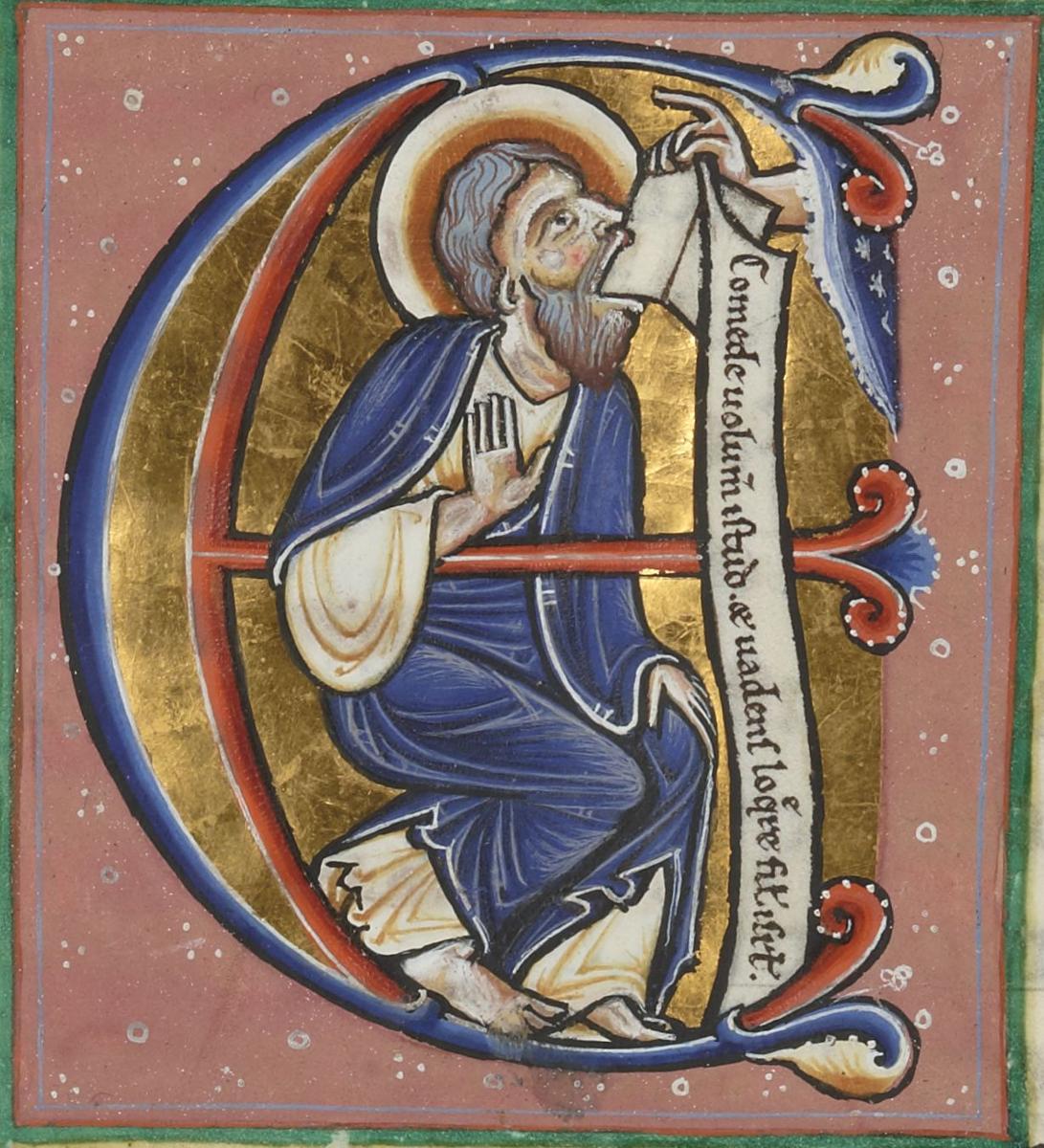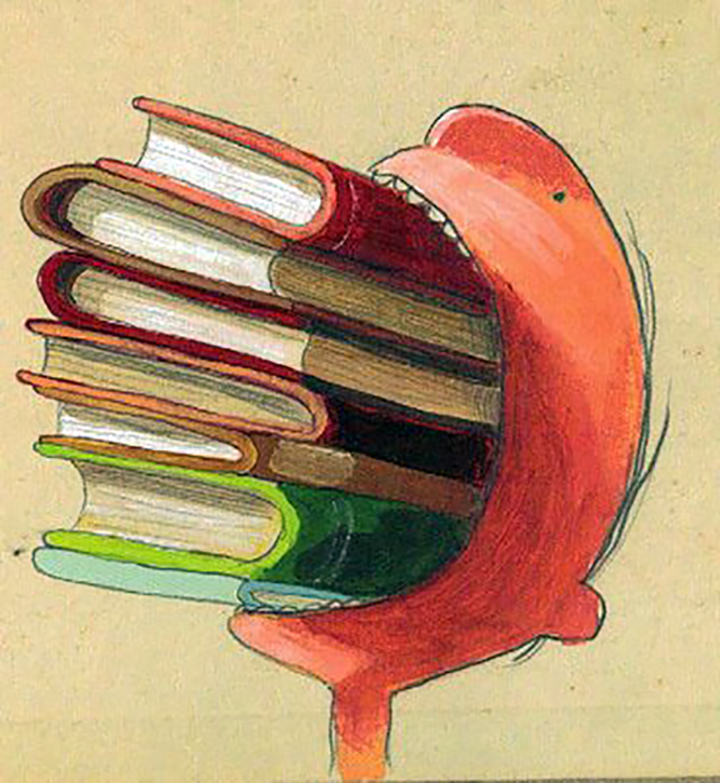March 15: The Prophet’s Call
♫ Music:
Day 30 - Thursday, March 15
Title: The Prophet’s Call
Scripture: Ezekiel 2:1-3:3
Then He said to me, “Son of man, stand on your feet that I may speak with you!” As He spoke to me the Spirit entered me and set me on my feet; and I heard Him speaking to me. Then He said to me, “Son of man, I am sending you to the sons of Israel, to a rebellious people who have rebelled against Me; they and their fathers have transgressed against Me to this very day. I am sending you to them who are stubborn and obstinate children, and you shall say to them, ‘Thus says the Lord God.’ As for them, whether they listen or not—for they are a rebellious house—they will know that a prophet has been among them. And you, son of man, neither fear them nor fear their words, though thistles and thorns are with you and you sit on scorpions; neither fear their words nor be dismayed at their presence, for they are a rebellious house. But you shall speak My words to them whether they listen or not, for they are rebellious. “Now you, son of man, listen to what I am speaking to you; do not be rebellious like that rebellious house. Open your mouth and eat what I am giving you.” Then I looked, and behold, a hand was extended to me; and lo, a scroll was in it. When He spread it out before me, it was written on the front and back, and written on it were lamentations, mourning and woe. Then He said to me, “Son of man, eat what you find; eat this scroll, and go, speak to the house of Israel.” So I opened my mouth, and He fed me this scroll. He said to me, “Son of man, feed your stomach and fill your body with this scroll which I am giving you.” Then I ate it, and it was sweet as honey in my mouth.
Poetry: To a Poor Old Woman
By William Carlos Williams
munching a plum on
the street a paper bag
of them in her hand
They taste good to her
They taste good
to her. They taste
good to her
You can see it by
the way she gives herself
to the one half
sucked out in her hand
Comforted
a solace of ripe plums
seeming to fill the air
They taste good to her
TASTING THE WORD
Lent is, for many, a time of disciplining the body’s eating for the preparation of the spirit. We do this in recognition of the cost of discipleship to a crucified Lord. However you are practicing Lent, the word of God on which you feast daily, here or elsewhere, is to be the comforting solace of honey - seeming to fill the air, to paraphrase Williams’s poem. Psalm 19 reckons that the Lord’s rules are ‘sweeter also than honey and drippings of the honeycomb’. These sentiments are picked up directly in that Psalm’s big brother, Psalm 119:103, ‘How sweet are your words to my taste, sweeter than honey to my mouth!’
To what end consume Scripture? In Ezekiel’s case, he must eat so that he would speak for God to others. Prophecy functions as warning, recalling God’s people to faithful obedience, worship and right living. Prophecy testifies to God’s covenant faithfulness, even in delivering his people to the consequences of their unfaithfulness. In the discipline of Lent, faithfulness and unfaithfulness jostle oddly side by side in our self-reflection.
‘When I have a little money, I buy books; and if I have any left, I buy food and clothes’. The quote is attributed to Renaissance biblical scholar Erasmus. It still makes clear that books are not food. We know to not literally eat books. But the metaphor of eating the written word persists. Artist Oliver Jeffers draws the boy who literally eats books on his quest to be the smartest: this is the competitive child’s dream. Who of us has not been tempted with just this imagination? Would we not prefer to eat our texts and absorb the truths we are asked to contemplate and master, to pass the test, to display our knowledge? But do we then come to each Lenten meditation in a spirit of competition? To set ourselves apart from our colleagues, peers, friends, sisters, and brothers, in devotion?
Evangelical sugar refiner Abram Lyle imprinted his cans of Golden Syrup with the picture of a prostrate lion beneath a swarm of honeybees. The strapline for their product is “Out of the strong came forth sweetness.” Guinness World Records recognizes Lyle’s Golden Syrup as the world’s oldest unchanged brand packaging. It endures into today’s era of less common biblical literacy. You see Ezekiel’s obedient honey tasting experience can be contrasted scripturally with Samson’s sweet tooth. Eating sweet things in Scripture isn’t always a mark of faithfulness. Israel’s deliverer, Samson, broke his Nazarite vows (Judges 13:4) by defiling himself by taking honey from the carcass of a dead animal, at the same time fueling his penchant for taunting his and God’s enemies with riddles. If any of us find ourselves returning to the word of God at Lent prone to see ways in which we have failed to live in faithfulness the life the Word calls for, Ezekiel’s delectation at words of judgment in today’s passage puts us on edge. Walking through Lent can remind us of our faithlessness. Nonetheless, may not Jesus’ ‘Good’ Friday salvation that we walk toward encompass us as God’s deliverance once did Samson? Ezekiel, told to consume the word of lamentation, is invited into a complex taste experience. His is a sweet prophetic eating, but consequently he is to dish up lamentation, rebuke and warning. Sweet tasting words of lamentation? Does this not strike us as odd?
A kindred oddness is highlighted by Williams Carlos Williams’ beautiful portrait of the subjective experience of good tasting plums. The poem’s insistent oddness, thought, sets this delicious moment of pleasure in the life of a ‘poor old woman’, eating on the street. Perhaps, in the light of the delicious tasting, available to all humans as eaters, the old poor plum-eating woman prophetically alerts us to the unfaithfulness of our marginalizations and exclusions, our neglect of those who ought to claim us as neighbors, with whom we might be taking our Lenten journey to the cross. Or read another way, do we also know ourselves as those old, poor, persons whose unfaithfulness by rights leaves us out on the street, excluded from the feast of God’s kingdom? Yet even here we are in Lent, met with the word of God, as the incarnate Word walks to Calvary in grieving lament over the sin of the world, to secure for us the rest of the land flowing with milk and honey. (Ezekiel 20 v 6, 15, Hebrews 4).
Lastly, the episode of Ezekiel’s prophetic eating of the word is recapitulated in the angelic command to the apostle John in Revelation 10:9-11. The title of our musical composition for today, ‘Seven Lights’ is suggestive of Revelation, too. The majestic Son of Man (Ezekiel 1:26, Revelation 1:16) bears seven lampstands in John’s vision. These are the seven churches, the church universal: invited to hear the word through the prophet that calls out compromise and commends faithfulness in the time between the times of Jesus’s comings. These who overcome will receive the invitation to the marriage supper of the Lamb who was slain (Revelation 20) and to the tree of life (Revelation 22:2, 14).
Prayer:
May we taste and see that you, O Lord, are good. May we have ears to hear the truth of our unfaithfulness, and taste buds to savor the mercy of our forgiveness, and eyes to see the Son of Man whose faithfulness stands for us, so that, in faith, despite faithlessness, we might overcome. Lead us into rest, even today, we pray,
Amen.
Andy Draycott
Associate Professor of Theology and Christian Ethics
Talbot School of Theology
Biola University
About the Artwork #1:
Ezekiel Eating the Scroll
Unknown Artist
Artwork Date: XII Century
Manuscript Illumination
Bibliothèque Nationale de France
There is very little on public record about this manuscript illumination illustrating Ezekiel eating the scroll from Ezekiel 3:3. Decoration in Medieval manuscripts performed a number of functions. It was used to enhance the appearance of the book, and its value. It might also function as a statement of the importance of the person or institution that had commissioned or owned the book. However, decoration was also intended to aid literacy by offering visual as well as textual contents, to help the reader in the interpretation of a text. Artistically speaking however it is very interesting to compare the illumination to the contemporary illustration by Oliver Jeffers of the boy eating a book. The passage from Jeremiah that is the today’s text also speaks of “eating the word of God.”
About the Artwork #2:
The Incredible Book Eating Boy
Oliver Jeffers
2006
Book Illustration
This is one of the illustrations from the book entitled The Incredible Book Eating Boy by Oliver Jeffers. The story is about a young boy named Henry who realizes that the more books he eats, the smarter he gets. Young Henry dreams of becoming the Incredible Book Eating Boy, the smartest boy in the world. This illustration is in a way very similar to the manuscript illumination of Ezekiel; both desiring to attain knowledge by digesting words.
About the Artist #2:
Oliver Jeffers (b. 1977) is an Irish-born illustrator. His paintings have been exhibited in galleries worldwide. HarperCollins UK and Penguin USA have published and translated his award-winning picture books into over 30 languages. In 2007, Jeffers was the official illustrator for World Book Day, and in 2008, Lost and Found became Oliver's first book to made into an animation by London-based Studio AKA. Jeffers won a New York Emmy in 2010 for his collaborative work with the artist and director Mac Premo, and in 2013 Jeffers co-directed the video for U2's Ordinary Love. Jeffers currently lives and works in Brooklyn, New York.
About the Music:
“Seven Lights” from the album The Signals
About the Composer/Performer:
Sergey Cheremisinov is a contemporary Russian composer who creates instrumental and electronic music.
About the Poet:
William Carlos Williams (1883–1963) was an American poet closely associated with Modernism and Imagism. In addition to his writing, Williams had a long career as a physician practicing both pediatrics and general medicine. He was affiliated with what was then known as Passaic General Hospital in Passaic, New Jersey, where he served as the hospital's chief of pediatrics from 1924 until his death. Williams has always been known as an experimenter, an innovator, and a revolutionary figure in American poetry. Yet in comparison to artists of his own time who sought a new environment for creativity as expatriates in Europe, Williams lived a remarkably conventional life. A doctor for more than forty years, he relied on his patients, the America around him, and his own ebullient imagination to create a distinctively American verse. Often domestic in focus and "remarkable for its empathy, sympathy, its muscular and emotional identification with its subjects," Williams's poetry is characteristically by honesty and candor.
About the Devotional Writer:
Andy Draycott is a British immigrant scholar living in Southern California with his family. He is a lifelong Charles Schultz’ Peanuts fan, enjoys reading novels and social history, cycling, running and baking. Currently he is an Associate Professor of Theology and Christian Ethics at Biola’s Talbot School of Theology. He counts God’s blessings in Christ, in local church, in family life, and in delightful work colleagues.

